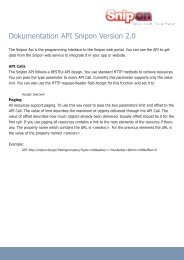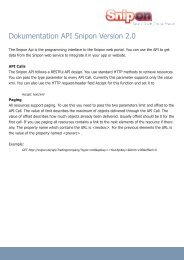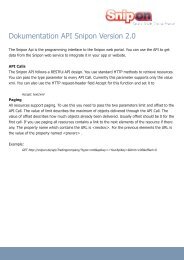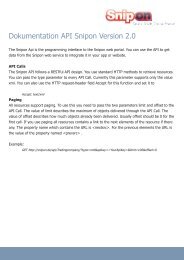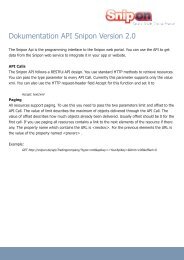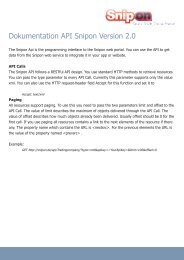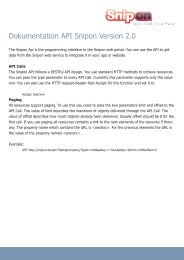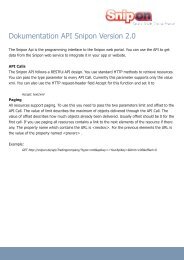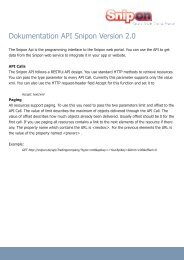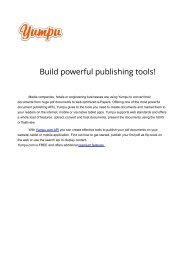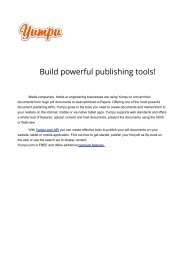test_pdf.pdf
You also want an ePaper? Increase the reach of your titles
YUMPU automatically turns print PDFs into web optimized ePapers that Google loves.
PANEL<br />
THREE<br />
Addressing Future Arms<br />
Control and Security Problems<br />
CHAIR: Catherine Kelleher,<br />
Editor, Naval War College<br />
Review<br />
DENYING NUCLEAR<br />
WEAPONS TO<br />
TERRORISTS: Matthew<br />
Bunn, Senior Research Associate,<br />
Project on<br />
Managing the Atom<br />
STEMMING MISSILE<br />
PROLIFERATION: Richard<br />
Speier, Nonproliferation<br />
Consultant<br />
THE ROLE OF NUCLEAR<br />
WEAPONS IN U.S.<br />
SECURITY POLICY: Gen.<br />
Eugene Habiger, former Commander<br />
in Chief of the U.S.<br />
Strategic Command<br />
CATHERINE KELLEHER: Hello. I’m Catherine Kelleher, and I’m very<br />
pleased and honored to have the chance to introduce this panel. I think it’s<br />
been a splendid morning, and certainly with an agenda of topics that make<br />
this panel about assessing future directions in arms control and in security<br />
even more important as we bring this wonderful day to fruition.<br />
I’d like to start, if I could—it’s a cheap trick but I’ll do it anyway—<br />
with arguing with the last speaker, Senator Biden, in what otherwise I think<br />
was a very stimulating address and certainly one that called on us to meet<br />
certain challenges in our future. He made an argument that perhaps it would<br />
be a good idea if the future would be like the past. I would at least like to<br />
challenge my fellow panelists to say, is the future really going to be like the<br />
past? Now are the forms, the techniques, the tool kit of arms control really<br />
going to be the same, or are there challenges about the evolving international<br />
system, about the ways in which we have found to cooperate in finding<br />
answers to meeting the challenges of proliferation, or even the restraint<br />
and constraint of arms development and spread really going to be the same<br />
as those tools and instruments and tool kits from the golden age of arms<br />
control, if it ever existed?<br />
You have the biographies of what is truly a distinguished panel in<br />
your pamphlets, so without further ado from me I’ll start with Matt Bunn,<br />
who will be our first speaker, followed by Richard Speier, and then by General<br />
Habiger.<br />
MATTHEW BUNN: Thank you, Catherine. In terms of the tool boxes<br />
of the future versus the past, it’s interesting that I don’t think the word<br />
“treaty” appears anywhere in my particular presentation. While the present<br />
is in some respects worse in the subject area I’m going to talk about than the<br />
past, we can hope, if we take effective policy action, for the future to be better<br />
than the past. But the actions that need to be taken are largely in the way of<br />
national actions or international cooperation in various formal and informal<br />
fora, rather than negotiation of formal treaty regimes in this particular<br />
area.<br />
It’s an interesting point because very often, certainly when I was in the<br />
government, there were different views as to how to move forward. The<br />
traditional response in some quarters of the State Department was “we’ve<br />
got to go meet with the Foreign Ministry people and negotiate a text about<br />
what we’re going to do.” The response at the labs was “let’s go to talk to<br />
their technical guys and see if we can get something going.” That in fact<br />
often worked a lot better. There were things you can do over a couple of<br />
vodkas at a site that you would never manage to get going at headquarters<br />
in Moscow.<br />
I’m in the fortunate position that while there’s a time constraint, I will<br />
be more easily able to meet it because Senator Biden covered approximately<br />
half of what I was going to say. The basic points being that there remains a<br />
serious threat that terrorists might get nuclear materials and that they might<br />
be able to make a nuclear weapon if they did. And then I’m going to go on<br />
from there to talk about what programs we have in place to deal with that<br />
and what more ought to be done.<br />
First of all, there are a number of myths, some of which Senator Biden<br />
already debunked. In particular, the notion that it would be almost impossible<br />
to make a nuclear bomb even if you got the nuclear material; that it<br />
51<br />
51



